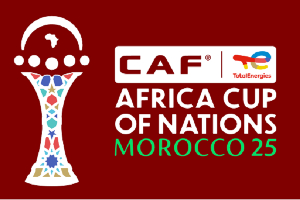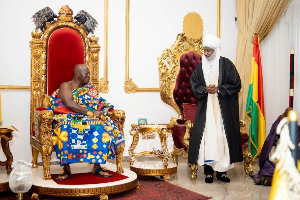In spite of the wholesale ban on export of scrap metals to seemingly protect sites of the five local steel manufacturing companies in Tema, some unscrupulous foreign nationals, particularly Indians, with some Ghanaian collaborators in the Ghana Revenue Authority (GRA), the Customs Excise and Preventive Service division (CEPS), have been exporting banned scrap metals on the blind side of the National security operatives, at the Tema Port.
The Ministry of Trade and Industry, last year placed an across-the-board ban on the exportation of scrap metals to protect the local steel manufacturing companies, and to save the industry from collapse.
Investigations, thereafter, have shown that Indians involved in the export of Scrap Metals, are busy exporting the scraps, without recourse to the Parliamentary Act that exclude them from doing so.
This paper’s investigations have been corroborated by the Chairman of Steel Manufacturing Association of Ghana (SMAG), Mr. J. Patel, in a letter dated January 21, 2014, addressed to the Minister of Trade and Industry, Haruna Iddrisu, which stated that its investigation has revealed that on January 15, 2014, a certain company being run by Indians at the Tema Heavy Industrial area, shipped twenty (20) containers of ferrous scrap metals from the Tema Port to some destinations in Asia.
The report named the following container numbers - MSKU 8773870, MSKU 8490680, MSKU 7017312, MSKU 7303430, MSKU 3010477, MSKU 8200138, MSKU 9247588, MSKU 3497112, MSKU 8020820, MSKU 5890643, MSKU7744967, MSKU 7552990, MSKU 8543184, MSKU 8971921, MSKU 84592263, MSKU 9487001, MSKU 9685610, MSKU 2477235, MSKU 8001305 and MSKU 948444 as being exported to certain destinations in Asia.
The Steel Manufacturers Association of Ghana (SMAG) raised this alarm over the abuse of an opportunity, which was opened for a number of enterprises to export non-ferrous scrap metals.
Most of these companies, the association noted, are rather exporting the ferrous scrap metals with impunity, because there is no check on them from their loading points before export.
The steel manufacturers further stated that the Ministry of Trade and Industry, between August and October 2013, gave approval to seven companies to export non-ferrous scrap metals, but customs division of GRA has not been supervising the loadings at the scrap yards, and this is giving the shady entities the liberty to stuff the containers with the ferrous scrap metals, which exportation had been banned.
The sector Minister, Haruna Iddrisu, appended his signature to all letters granting the approvals and Blanco Recycling is to export only brass from dismantled ships, copper cable from fridge motors, and lead from car battery cells.
FIDEV Company Ltd, is permitted to export only 20 metric tons of copper scrap metals, Everest Metals Recycling Ltd, to export 150 metric tons of roofing steels, car radiators, car engine parts and bits and pieces of non-ferrous, Potrodom International Ltd, to export 200 tons of aluminum and 40 tons of copper, N.N. Est. Metal Company, granted permit to export 1000 tons of aluminum, 380 tons of copper, 220 tons of brass and 50 tons of zinc.
Nestle Ghana Limited, had approval from the sector Minister to export copper off-cuts, and Verve Global Ghana, 1000 tons of aluminum scrap metals only.
The minister’s letters advised the companies to take note that the approval letters are not transferable and valid for a period of six (6) months and shall not be construed as a blanket approval to operate beyond the duration of six months.
Copies were sent to the Commissioner of Customs Division of Ghana Revenue Authority, and the Director-General, Ghana Ports and Harbours Authority, to facilitate shipment of the items.
Further investigations, however, revealed that even though Customs sector commanders were directed about two years ago to ensure that before containers are loaded with scrap items, officers must be present, the directive is not being adhered to, bringing to the fore a lot of security implications. The loaded containers are only described as containing items the shipper decides to manifest and not necessarily the actual content.
The Director of Port, Tema, Mr. Jacob Adorkor, when contacted on the allegation that some exporters are shipping banned ferrous scrap metals, said the doors of the authority are open to national security issues.
That, if intelligence comes from the security agencies to suspect any container to be carrying goods which are not prescribed by law, the authority is ready to assist, by stopping and opening the said container for further examination. Efforts to make Customs explain why its personnel are not available in the yards, where containers are loaded with scrap metals for export, however, proved futile.
A national security source, however, said that its operations are tailored to support Customs which has the final duty to release containers before they are shipped, and so, until information comes to the contrary, the sector is not aware of such illegal exportations.
Business News of Friday, 14 February 2014
Source: The informer













